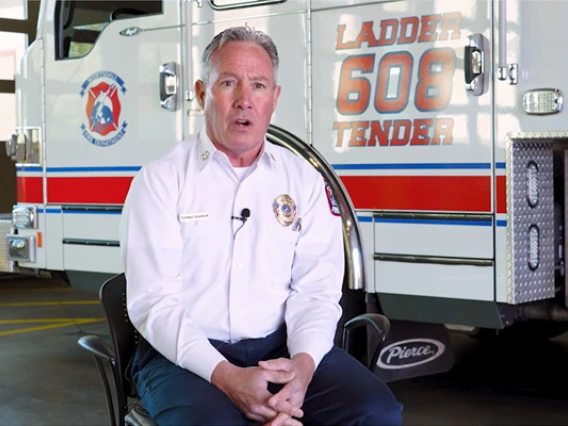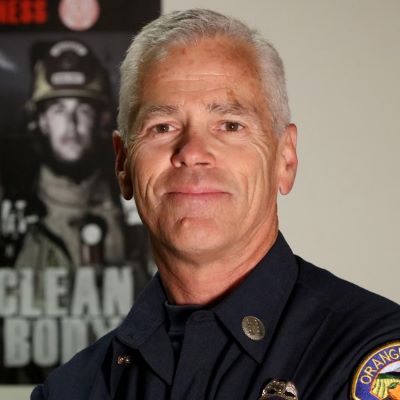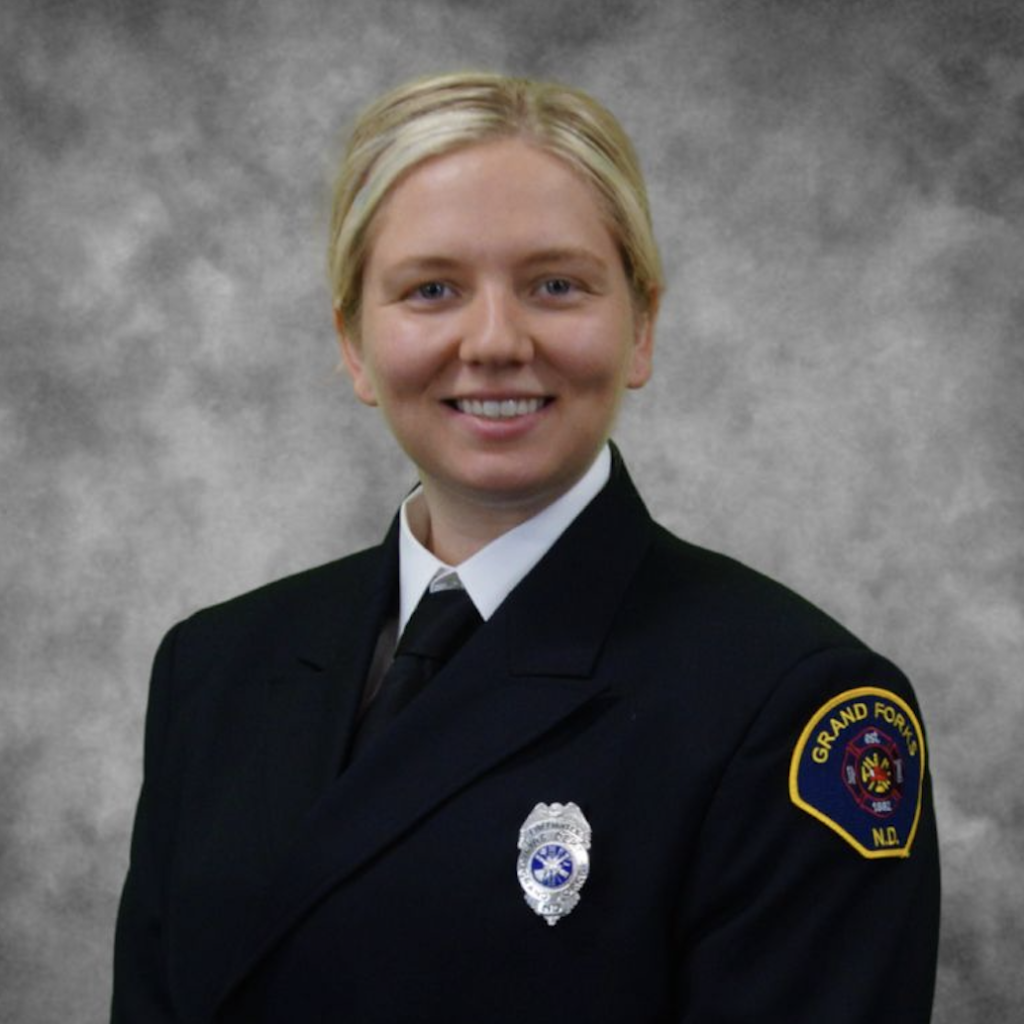Center for Firefighter Health Collaborative Research

About Us
The Center for Firefighter Health Collaborative Research works with firefighters and fire departments to study the occupational health risks that firefighters face. Our research gathers data that will inform decisions, practices, and policies to keep firefighters safer and healthier.
The Center builds on years of firefighter health research conducted by Zuckerman College of Public Health faculty in close collaboration with fire departments, research that has already had a lasting positive impact on firefighter health.
News

Funding
$4M NIH grant will test worksite sleep health coaching for Arizona firefighters

Research Study
New Study Will Evaluate Methods to Reduce PFAS Levels in AZ Firefighters

News Story
Study Aims to Reduce Firefighter Cancer Risk
Meet the Team

Dr. Burgess is a Professor at the University of Arizona Mel and Enid Zuckerman College of Public Health. He has worked as an Emergency Medicine physician, Medical Toxicologist, and Occupational and Environmental Medicine physician, and has been collaborating with firefighters on health and safety research since 1992, including a focus on cancer prevention since 2015. Dr. Burgess has served as Principal Investigator for multiple Federal Emergency Management Agency (FEMA) funded research grants with firefighters and is a co-lead of the Fire Fighter Cancer Cohort Study (FFCCS). He is a member of Fire Service Occupational Cancer Alliance, facilitated by the National Fallen Firefighters Foundation (NFFF).

Dr. Ellingson is an Associate Professor in the Department of Epidemiology and Biostatistics at the Mel and Enid Zuckerman College of Public Health. Before joining the faculty at the University of Arizona in 2017, she worked as an infectious disease epidemiologist at the CDC and Oregon State Health Department. Her research focuses on the intersection of occupational risk and infectious disease, with emphasis on respiratory and antimicrobial-resistant infections. Dr. Ellingson is interested in the factors that lead to elevated risk of infection in first responders and in interventions to protect first responders, their families, and the communities they serve.

Leslie V. Farland, ScD, is an Assistant Professor in the Department of Epidemiology and Biostatistics at the Mel and Enid Zuckerman College of Public Health at the University of Arizona. She has training in biology (AB; University of Chicago) and reproductive epidemiology (MSc, ScD; Harvard T.H. Chan School of Public Health). Her research focuses broadly on gynecologic and reproductive health. Specifically, she studies reproductive health among female firefighters including pregnancy outcomes, infertility, and menopause. She is also interested in translational research to improve reproductive health outcomes among female firefighters.

Dr. Furlong is an Assistant Professor of Environmental Health Sciences at the University of Arizona’s Mel and Enid Zuckerman College of Public Health. She is an environmental epidemiologist with expertise in biomarkers of exposures and effect, epigenetics, and metabolomics. She has been collaborating with the CFHCR on work related to metabolomic signatures of fires, epigenetic signatures of fires and of PFAS, and is also interested in research on reproductive health outcomes among firefighters.

Dr. Haynes is an Associate Professor in Health Promotion Sciences with joint appointments in the Departments of Psychology and Psychiatry. She is a licensed clinical psychologist with specialty certifications in Behavioral Sleep Medicine (CBSM, DBSM). Her research examining the health-related consequences of stressful life events has been funded by the National Heart, Lung, and Blood Institute (NHLBI), the National Institute of Mental Health (NIMH), the Department of Defense (DoD), and various nonprofit associations including the American Sleep Medicine Foundation (ASMF). She has over 20 years of experience conducting research in stress and sleep and also providing professional services to organizations and individuals, including veterans, firefighters, and emergency response system telecommunicators. Dr. Haynes is committed to the administration of evidence based mental health intervention. Her current research investigates ways to increase the uptake of these interventions in firefighters as well as in other at-risk groups.

Kelly Reynolds MSPH, PhD is Professor and Chair of the Department of Community, Environment and Policy; Director of the Environment, Exposure Science and Risk Assessment Center (ESRAC) at the University of Arizona. Since 1990, Dr. Reynolds has worked as a researcher and public health educator in environmental science, specializing in water quality, food safety, and disease transmission. Her extensive experience in those research areas includes her role as a Principal Investigator of numerous projects and the publication of hundreds of journal articles, book chapters, and professional reports.

Dr. Liu is an Assistant Professor in the Department of Epidemiology and Biostatistics at the University of Arizona. Her research primarily focuses on developing statistical methods and theory to harness the variety of issues in analyzing the large and complex data set. Dr. Liu has been collaborating with Drs. Burgess, Farland, and Furlong on the analysis of firefighter cohorts since 2021.

Shawn Beitel is the Research Program Administration Officer for the Firefighter Health Collaborative Research Program at the University of Arizona. He has a Master of Science Degree in Toxicology from the University of Saskatchewan, Canada, and over 10 years of experience in research assessing effects of numerous toxicants using in vitro bioassays, analytical chemistry testing, and biochemical and molecular methodologies. Working closely with numerous fire departments around the country, Shawn also leads the field and laboratory research teams.

Samantha Castro is a Clinical Research Coordinator in the Department of Community Environment and Policy at The University of Arizona Mel and Enid Zuckerman College of Public Health (MEZCOPH). She is currently working on the Fire Fighter Cancer Cohort Study (FFCCS) as a research coordinator performing phlebotomy and laboratory work in Dr. Burgess Lab. She also works on the AZ Heroes Study on the specimen Biorepository. Samantha graduated from The University of Arizona MEZCOPH and obtained a Bachelor of Science in Public Health. Samantha has experience and training as Clinical Research Coordinator and in Chemo-Prevention Breast Cancer, Osteoarthritis, Neurology, Cardiology and COVID-19 Vaccine Research Studies.

Alissa Coleman is a Clinical Research Coordinator at the University of Arizona Mel and Enid Zuckerman College of Public Health. She received her Master’s Degree in Kinesiology from San Francisco State University. Prior to working at the U of A, she has worked as a Lecturer for San Francisco State and as a Certified Athletic Trainer. In her current role, she serves as project manager for the PFAS Study within the Firefighter Cancer Cohort Study (FFCCS), assists with the management of field collections, and oversees student workers within the lab.

Reagan Conner is pursuing a MS in Environmental Health Sciences through the University of Arizona. She served as a certified volunteer firefighter for approximately two years while she worked toward completing her BS degree in Biochemistry from Mississippi State University. Reagan moved to Tucson in July of 2022 to begin assisting with the development of training materials for the fire service on topics such as PFAS exposure, health effects and exposure reduction, and women firefighters.

Sally Littau, MT (ACSP), is a Health Research Coordinator for Dr. Jeff Burges. She has worked on his various firefighter projects for over 20 years including heat stress, pulmonary function, injury prevention, cardiovascular disease, cancer prevention, and exposure during fire suppression to breast feeding firefighters.

Andrew Stafford is a graduate student at the University of Arizona in the Mel & Enid Zuckerman College of Public Health, who is finishing his MPH in Industrial Hygiene, and will be pursuing a PhD in Environmental Health Science in the College. Andrew's research focuses on occupational health and safety for firefighters and miners. Andrew worked as a volunteer firefighter/EMT and then Wildland firefighter for the past two years in Southern Arizona (pictured to the left). Andrew joined the Fire Fighter Cancer Cohort Study (FFCCS) team under Dr. Jeff Burgess in November 2021 as the FFCCS Wildland Coordinator, where he has combined his educational background with real-world firefighting experience to contribute to the study.

Michelle Valenti is the project coordinator for the Women Firefighter Study. She is a doctoral student in Epidemiology at the University of Arizona Mel & Enid Zuckerman College of Public Health. Michelle completed her master’s degree in Health Promotion at MEZCOPH in 2020 and joined the FFCCS in the fall of 2021. She is passionate about advancing women’s health research and improving our understanding of reproductive disorders.

Krystal Jovel is the REDCap coordinator for multiple projects within the Firefighter Health Collaborative Research Program at the University of Arizona Mel and Enid Zuckerman College of Public Health. She has experience in biopsychosocial interventions with a focus on cardiovascular disease and psychophysiological methods. Krystal’s research interests include social epidemiology, health disparities, indigenous populations, and cardiovascular health. Her hobbies include: growing her never-ending TBR, bowling, and sand volleyball.

Cynthia Porter is a staff member and recent MS graduate at the Mel and Enid Zuckerman College of Public Health. Cynthia currently works as a scientific analyst for the AZ-HEROES study funded by the CDC to study immune markers of protection against COVID-19 in healthcare workers, first responders, and essential workers, and as a data scientist in the FCRP to study potential cancer interventions in firefighters. Cynthia’s current research includes COVID-19 immune response in children, correlates of protection against COVID-19, and other serological studies. Her research interests include infectious disease, occupational health, clinical trials, and health disparities.

James Hollister is a second-year PhD student in Biostatistics and a data analyst for the Firefighter Collaborative Research Project (FCRP). Prior to this position, he obtained an MS in Biostatistics at the University of Arizona and an undergraduate degree in Mathematics from the University of North Dakota. His research interests involve infectious disease epidemiology, longitudinal methods, COVID-19, and clinical trials. Outside of work, his hobbies include running, golfing, playing piano, and spending time with friends.

Olivia Healy is a Clinical Research Coordinator for the Fire Fighter Cancer Cohort Study (FFCCS) and the Firefighter Collaborative Research Project (FCRP) at the University of Arizona Mel and Enid Zuckerman College of Public Health. She received her BS in Natural Resources from the University of Arizona. In her current role, she serves as a regulatory coordinator for the Fire Fighter Cancer Cohort Study (FFCCS), Firefighter Collaborative Research Project (FCRP), and Dr. Burgess’s other projects. Her research interests include environmental health, health disparities, and occupational health. Outside of work, her hobbies include cooking, baking, reading, and photography

Jessica Hlomatchi is a clinical research assistant for the Fighter Cancer Cohort Study (FFCCS) at The University of Arizona Mel and Enid Zuckerman College of Public Health (UA MEZCOPH). She completed her Bachelor of Science degree in Biomedical Sciences at UA in 2023 and joined the FFCCS at the start of 2024. In her current role, she assists with consenting participants, coordinating activities, generating study materials and more for the Women Firefighter Study and other sub studies within the FFCCS. Her research interests include women’s reproductive health, minority health & health disparities.
Our Fire Service Partners

Beginning his career in the fire service in 1988, Captain John Gulotta joined the Tucson Fire Department (TFD) in 1997. He was promoted to Captain in 2005 and, in 2011, became the first Captain in TFD to hold the position of Health and Safety Program Coordinator. Captain Gulotta serves as the Southern Arizona Safety Officer Association chair and provides safety-related leadership to Southern Arizona fire service partners. Captain Gulotta has earned several awards for his service with TFD, including the Firefighter of the Year in 2012 and the Fire Chief’s Award in 2016.
Starting in 2015, Captain Gulotta and TFD began collaborating with the University of Arizona in several studies funded by FEMA to examine the link between occupational toxins in firefighters and increased cancer rates. This partnership has assisted in developing critical best practices for firefighter occupational cancer prevention in Tucson, AZ, and across the country. Captain Gulotta spearheaded a TFD implementation of three exposure prevention interventions, including post-fire wash down, engineers-on-air, and maintaining clean cab principles. Captain Gulotta also serves as a TFD representative for the Fire Fighter Cancer Cohort Study (FFCCS.org). His goal is not just to get firefighters home at the end of their shift but to ensure that they can fully enjoy their hard-earned pensions.

Jamie Gabriel is a Fire Captain for Los Angeles County Fire Department assigned to the Training Division. She began her career in 2007 as a firefighter for the Department and in 2011, after completing her Paramedic training, became a clinical instructor for the UCLA Center for Prehospital Care at the David Geffen School of Medicine.
Captain Gabriel works as an Los Angeles area site coordinator for the FFCCS helping to enroll new participants and conduct on going follow-up collecting biological samples from enrolled participants.

Jeff Hughes is a retired Fire Captain with the Orange County Fire Authority (OCFA) with 38 years of firefighting experience. Jeff is a third generation Firefighter whose father died of occupational cancer after serving 21 years with the Long Beach Fire Department. Jeff spent 3.5 years as an Assistant Fire Training Officer and retired from the Risk Management section as the OCFA’s Cancer Awareness and Prevention program manager with the objective to reduce exposures that lead to occupational illnesses, and to create a culture change for the health and safety for our firefighters. Jeff is currently the chair for the working group to create the Orange County Fire Chief’s Operational Annex for contamination reduction. He is also Vice Chair for the California State FIRESCOPE Cancer Prevention Subcommittee working to create a working plan for reducing exposures and occupational cancers in the California fire service. Jeff is also an active participant in the First Responder Center for Excellence Cancer Advisory board. Jeff has attended the National Fire Academy Managing Fire Officer Program and Safety Program- Operations. Jeff is also a qualified Line Safety Officer by the National Wildland Coordinating Group. Jeff is currently the IAFF Local 3631 Wellness Business Agent and authored the IAFF resolution creating the National Fire Fighter Cancer Awareness Month. Jeff is still helping with the Orange County Fire service and labor groups to create policies and trainings to reduce exposures and occupational cancers in our work force. Jeff also participates in the Fire Fighter Cancer Cohort Study by assisting with partner agencies with on boarding and data collection as well as planning with future projects that are of concern to our firefighters.

Derek Urwin, PhD is an Engineer with the Los Angeles County Fire Department and Assistant Adjunct Professor of Chemistry & Biochemistry at UCLA. He has been a fire fighter for 15 years, serving in the communities of East Los Angeles and Inglewood. He works collaboratively with academic researchers on the Fire Fighter Cancer Cohort Study, is a member of California State Fire Training’s Behavioral Health and Cancer Awareness Curriculum Development Cadre, and chairs the California FIRESCOPE Cancer Prevention Subcommittee. His academic research examines the structural and thermodynamic features of covalent polycyclic aromatic hydrocarbon (PAH)-DNA adducts.
Beginning his fire service career in 1992, Darin Wallentine is the Sarasota County Fire Department (SCFD) Deputy Fire Chief of Administrative Services. Chief Wallentine leads the SCFD Training, Logistics, and Fire Prevention Divisions and supports civilian administrative staff. Before joining SCFD, Chief Wallentine led the Tucson Fire Department Safety & Wellness Division. Whether in Tucson, AZ, or Sarasota County, FL, Chief Wallentine is passionate about cancer research, prevention, and critical partnerships with academic researchers. Chief Wallentine facilitated collective leadership between the Tucson Fire Department and research teams for the University of Arizona and the University of Miami to conduct fire service cancer research and prevention efforts. As a result, Chief Wallentine and the Tucson Fire Department have become leaders in what is known as the Fire Fighter Cancer Cohort Study (FFCCS.org), a 30-year study designed to monitor the effects of carcinogen exposures and the genetic changes on firefighters over time.
Chief Wallentine has earned a master’s degree in Public Safety Leadership and Administration from Arizona State University and an undergraduate degree in Political Science from California State University at Fullerton. Chief Wallentine is pursuing a Law and Policy Doctoral degree from Liberty University in Lynchburg, VA. Chief Wallentine is affiliated with many fire service professional groups and committees. He is currently serving as an At-Large Director for the Safety, Health & Survival Section (SHS) Board for the International Association of Fire Chiefs (IAFC)

Kepra is the Co-Owner and Chief Operating Officer for HeartFit For Duty. HeartFit For Duty is a medical practice that works with Police and Fire Departments to bring health/wellness into their agencies with both Occupational Medicine and Primary Care.
Kepra works with various fire departments and law enforcement agencies across the country to educate members on relevant health risks specific to their jobs. Kepra has dedicated her career to the public safety community and is a voting member on NFPA committees as well as the National LEO Medical Guidance committee. HeartFit For Duty works with agencies to continuously expand the scope of wellness programs and identify ways to implement change within the public safety community. Kepra and the HeartFit team partner with research projects to drive the needle forward to change habits and improve health.

Miranda Olson has been a part of the Grand Forks Fire Department since 2015, where she currently holds a position as a Fire Apparatus Specialist. With a passion for public health, Miranda completed her bachelor’s degree in public health education from the University of North Dakota in 2022. Her dedication to community well-being was recognized when she was nominated as the Grand Forks Public Health Champion in the same year.
Projects and Grants
CANCER
The Firefighter Multicenter Cancer Cohort Study
This project is funded from 2016 through 2023. This project was federally funded by the Federal Emergency Management Agency (FEMA).
Interventions to Reduce Firefighter Cancer and Cardiovascular Risks
The goal of this research is to reduce firefighter cancer and cardiovascular disease risks, including but not limited to risks associated with PFAS exposure. This project is funded from 2023 through 2026. This project was funded by the Arizona Board of Regents.
Learn more in this video.
EXPOSURE
Per- and Polyfluoroalkyl Substances (PFAS): Firefighter Exposures and Toxicity
Exposure to per- and polyfluoroalkyl substances (PFAS) in the general population has been linked to cancer, elevated cholesterol, altered immune and endocrine response, respiratory disease, and reproductive toxicity. The goal of this project is to gather further evidence on PFAS exposure in firefighters and develop best practice recommendations to reduce firefighter PFAS exposure. This project is funded by FEMA from 2019 through 2022.
Per- and Polyfluoroalkyl substances (PFAS) Exposures and COVID-19 in Firefighters
This was funded from 2022 through 2022 by the National Institute of Environmental Health Sciences (NIEHS).
WILDLAND FIRE
Building Collaborations for Bushfire Firefighter Health
The Kinghorn Foundation, Fulbright Australia, February - May 2023
Download Bushfire Firefighter Fulbright Participant Report (PDF)
Wildland Fire Fighters: Exposure Assessment, Carcinogenic Effects and Risk Management
This project was funded by FEMA from 2021 to 2024.
WOMEN FIREFIGHTERS
Inhaled Environmental Exposures and Anti-mullerian Hormone Levels, a Marker of Reproductive Health
Firefighters are exposed to many harmful materials and conditions while fighting fires. These hazardous exposures put them at risk for damaging health effects, including those that may negatively impact female reproductive health. Anti-müllerian hormone (AMH) can be used as a measure of ovarian reserve, or the quantity of eggs in the ovaries. We will measure the AMH levels of female firefighters and compare them to the AMH levels of females who are not firefighters. This project is receiving federal funding from 2020 through 2022.
Women Fire Fighters Study: Stress, Cancer Risk and Reproductive Toxicity
Women firefighters have high rates of post-traumatic stress disorder, increases in certain cancers, and adverse reproductive outcomes compared to women in the general population. However, the lack of sufficient information on the causes of and mechanisms leading to these occupationally related illnesses limits the creation of effective interventions. The goal of this project is to evaluate stress, cancer risk, and reproductive toxicity in women firefighters and to develop, beta test, and assess the feasibility of a peer support intervention. This project was funded by the FEMA from 2020 through 2023.
Women Fire Fighters Study: Evaluation of Exposures and Toxicity
Women firefighters have high rates of adverse reproductive outcomes including infertility, miscarriage, premature birth, and lower levels of AMH. Compared to their career counterparts, women volunteer firefighters have higher rates of miscarriage and premature birth. Women firefighters also have greatly increased bladder cancer incidence (greater than 10-fold) and mortality (greater than 30-fold) compared with comen in the general population. The purpose of this study is to evaluate exposures associated with reduced fertility and risk for bladder cancer in women firefighters, in order to plan effective interventions to mitigate these conditions. This study is funded by FEMA through 2022 to 2025.
Publications
Building Collaborations for Bushfire Firefighter Health
The Kinghorn Foundation, Fulbright Australia, February - May 2023
Contact Us
For more information about the Center for Firefighter Health Collaborative Research, please email COPH-CFCHRContact@arizona.edu.

